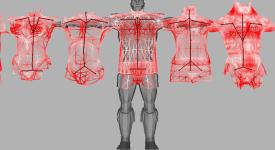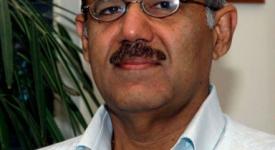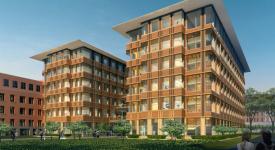News
The Department of Computer Science (CS) recognized scholarship recipients, scholarship donors, and Friends of Computer Science (FoCS) members with a Scholarship Luncheon at the Alumni Center on February 2, 2011.
Read More
The future of the Internet could look like this: The bulk of the world’s computing is outsourced to “the cloud”―to massive data centers that house tens or even hundreds of thousands of computers. Rather than doing most of the heavy lifting themselves, our PCs, laptops, tablets and smart phones act like terminals, remotely accessing data centers through the Internet while conserving their processing juice for tasks like rendering HD video and generating concert-quality sound. Read More

Nationwide, computer scientists are in high demand. In Central Texas, high school seniors David Weiser and Alex Smith are ahead of the game when it comes to computers. They’ve developed a new social media website called Webcam Window.
Read More
Computer scientists Lorenzo Alvisi, Michael Dahlin and Raymond Mooney have been named 2010 Fellows of the Association for Computing Machinery for their contributions to computer science that have provided fundamental knowledge to the field and generated innovations in industry, commerce, entertainment and education.
Read More
http://www.youtube.com/watch?v=VRSyVy1fSXA&feature=player_embedded
Students and staff from Department of Computer Science constructed a model of Taylor Hall entirely out of Lego’s. Taylor has been demolished to make way for the new Gates Computer Science Complex. Check out the surprise ending to this video. The model is amazing!
Read More
Racial profiling is a “fundamentally flawed” method of catching terrorists, and is no more effective than random sampling techniques, according to a recent study by a UT computer science professor. Read more at the Daily Texan.
Read More
AUSTIN, Texas–Stop using racial profiling, says Professor William Press.
He claims that as well as being politically and ethically questionable, racial profiling does no better in helping law enforcement officials in their task of catching terrorists than standard uniform random sampling techniques.
This is the topic of a paper publishing in Significance, the magazine of the Royal Statistical Society and the American Statistical Association. Read More

Pagination
- First page
- Previous page
- …
- 76
- 77
- 78
- 79
- 80
- 81
- 82
- …
- Next page
- Last page




